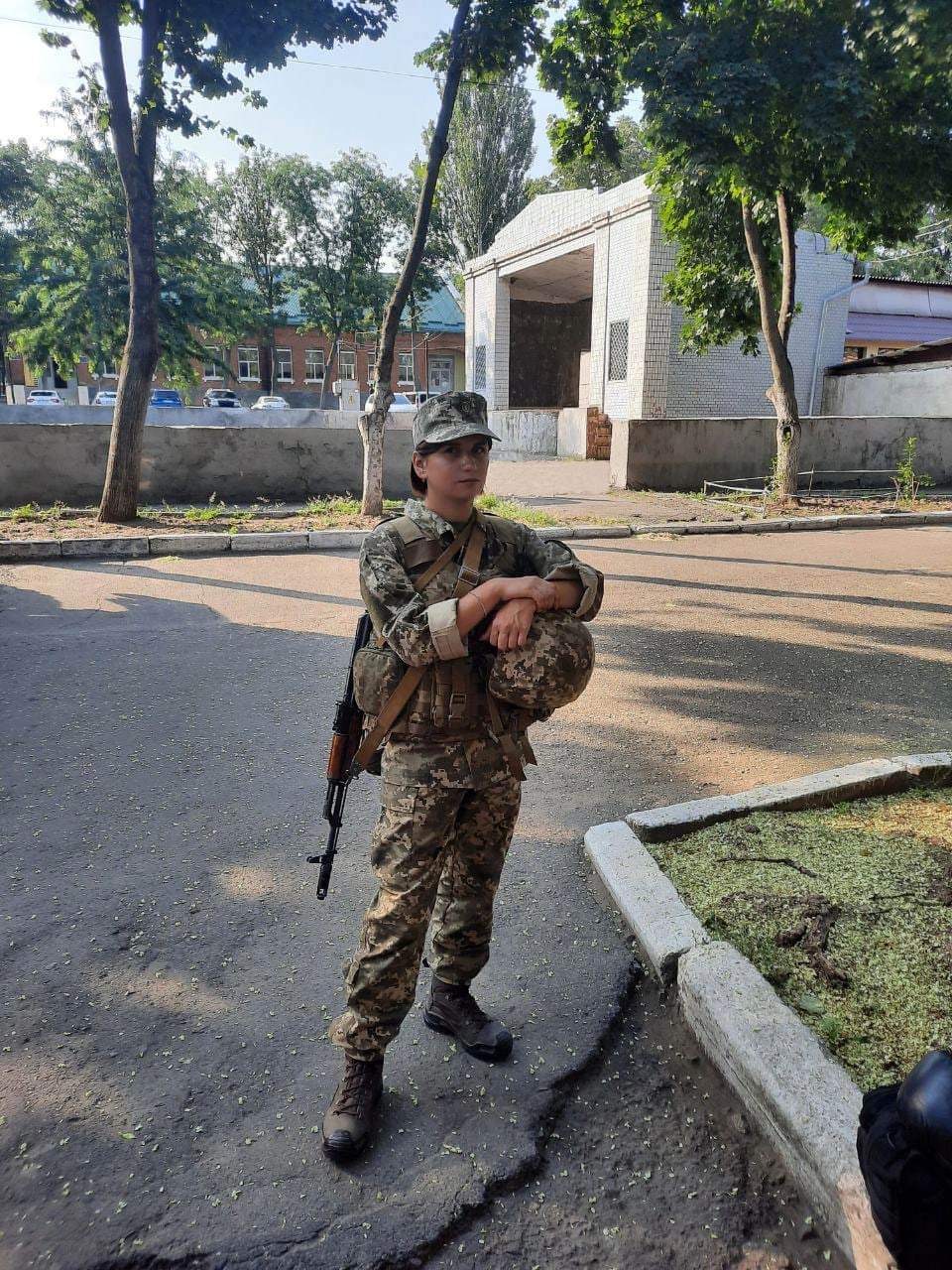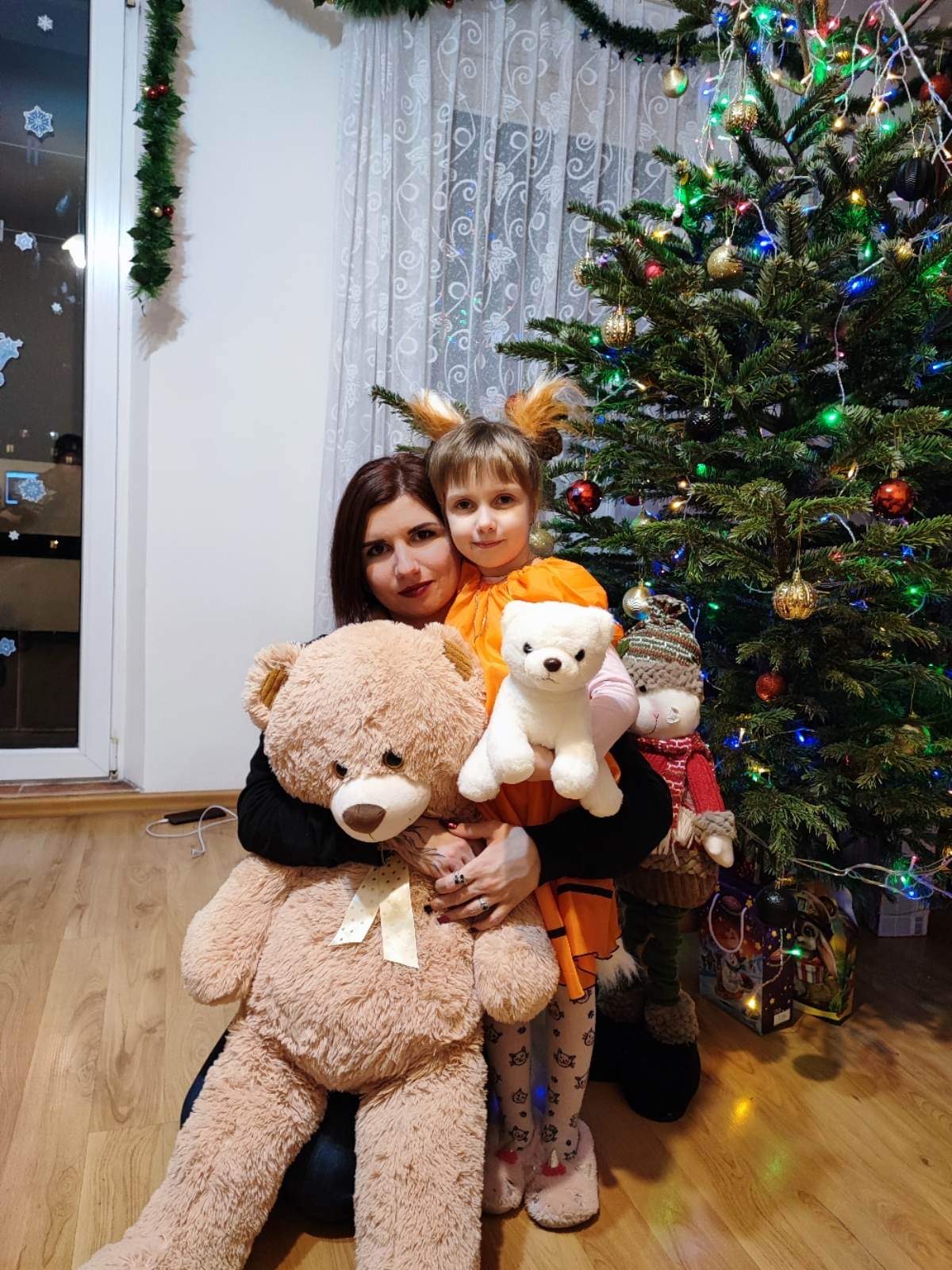Russian captivity, a daughter left behind for half of a year
After nearly half a year in Russian captivity, Ukrainian military nurse Viktoria Obidina finally reunited with her young daughter who she’d been torn apart from at a Russian checkpoint just weeks after Russia invaded.
When Russian forces rolled into Ukraine on February 24 last year, Viktoria was working as a nurse at a hospital in the port city of Mariupol. “That night, the first of the wounded began to arrive at the hospital,” she recalls Context.ro. “Sometimes they brought fifteen people in at once.”
Mariupol would become the center of a hotly contested battle as Moscow’s forces brutally bombarded and besieged the city, which is situated on the Sea of Azov. Much of it was reduced to rubble and an untold number of civilians were killed.
Viktoria’s commander decided to post her along with Alisa, her four-year-old daughter, to a makeshift hospital at Azovstal, Mariupol’s sprawling steelworks factory where Ukrainian civilians and soldiers became trapped as the Kremlin’s forces encircled the plant, and relentlessly shelled it.

viktoria obidina
Photo source: Viktoria Obidina
Viktoria and Alisa were among a large number of civilians trapped at the steelworks, barely scraping by each day with tiny amounts of food and water. “We were bombarded with rockets and bombs,” she said. “We lived deep underground with no light.”
Every day at Azovstal, she said, felt as though it “could be the last,” until hope was raised when her commander tried to evacuate Viktoria and Alisa through a Red Cross humanitarian corridor.
For the sake of her and Alisa’s lives, in early May she realized it was time to evacuate, she said, and they joined a queue of civilians attempting to flee the embattled steel plant. Viktoria left Azovstal without documents, but her true identity was uncovered at a Russian checkpoint.
“They wanted to know with whom I served, how many people and how much medicine was left in Azovstal,” she said. “They interrogated and beat me.”
Checkpoint officials had told Viktoria that her daughter would be placed in an orphanage, but said a lady who she had met just hours before in the filtration camp offered to take Alisa with her to the city of Zaporizhzhia, which was under Ukraine’s control.
After many sleepless nights and barely eating from worry, Viktoria learned a few weeks later that Alisa had arrived safely to Zaporizhzhia.
“When I spoke with my mother, I tried in every possible way to make it clear to me that Alisa did not need to be returned,” Viktoria recalls, who was allowed only that one call during her six-month detention. ”Mom understood me.”
She was held in two different detention facilities, both cramped places with poor sanitation where people were left no choice but to eat food “with cockroaches.”
On October 14, Viktoria said in the interview with Context.ro that the military entered her cell and gave the names of three other women detained with her, who were going to be released in a prisoner exchange. Viktoria, however, was not on the list. “I started sounding the alarm, I asked to go with everyone,” she said.
She wasn’t sure that her plea would be successful. Viktoria said that she and the other captives were then led off blindfolded, with their hands tied onto a truck, and then to a Russian cargo plane.
“We thought we were just being transported to another camp,” she recalls. “We couldn’t believe that this was an exchange. Only when we saw that buses were coming from our side – we started to believe (it).”

viktoria obidina
Photo source: Viktoria Obidina
After she was freed, the first person she called was her mother, who had moved to Poland with Alisa to escape the war. “Mom, I was exchanged,” she told her, struggling to hold back her tears.
Before Christmas, Viktoria joined her loved ones in Poland. Before leaving, she had started therapy in Ukraine to address her traumatic experiences.
When she finally reunited with her daughter, Alisa, they embraced each other tightly. “I’ve been waiting for you,” Alisa told her.
Edited by Stephen McGrath



Can you provide more details about the personal experience shared in the article regarding a daughter left behind during her father’s Russian captivity, and how did this separation unfold?
Are there insights into the impact of Russian captivity on the family dynamics, and how did they navigate the complexities of maintaining connections during such a challenging period?
If the article discusses external assistance or interventions that supported the daughter and her family, it highlights the importance of community and support networks during difficult times.